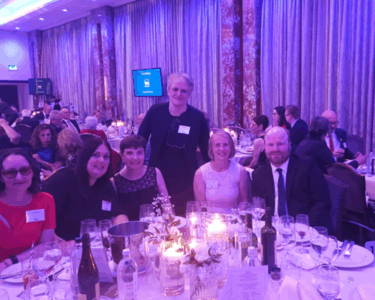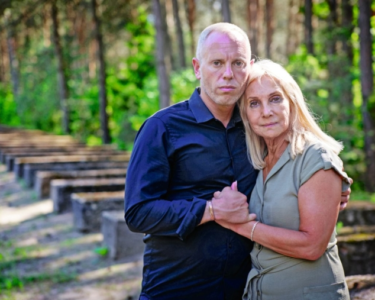A message from Ruth-Anne Lenga, Associate Professor in the UCL Centre for Holocaust Education
A week ago, my IOE laptop was on its last legs. It couldn’t maintain battery charge; the internal mouse had given up and the whole piece of kit looked battle worn. I ambled my way to the lower level of the IOE to find the small and inconspicuous IT office where hopefully I’d find some kind soul who could triage the situation. Either it could be resuscitated, or it was game over for the computer together with my unsaved data. Things were not looking good, but when I knocked the door, I was delighted to find, to my great surprise, a party going on amongst the technicians and a few of their guests. It was Eid – the feast at the end of the holy period of Ramadan. Me and my ailing computer were welcomed in and invited to join the festivities.
The traditional food was delicious, steaming hot and plentiful – all home-cooked by the family members of the staff. The atmosphere was wonderful – full of generosity and friendship with great music. I was told that the IT team celebrate Eid every year without fail – it’s the highlight of the year and even staff who had left the IOE return as guests for this celebration. We chatted about the meaning of Ramadan and the symbolism behind the Eid celebration. Colleagues explained to me how Eid celebrates rejuvenation following a period of sacred prayer, self-restraint and fasting, bringing renewed inner strength to mind, body and soul.
The Jewish Passover which will be celebrated by Jews all over the world on Monday, carries some of these ideas too. This holy time commemorates the biblical story of the liberation from slavery some 3,000 years ago. For eight days Jews do without foods that contain flour, such as leavened bread and cake. Rather flat unappetising ‘matzah’ crackers are eaten instead during the eight days of the festival. This tradition reminds Jews of how their ancestors had to escape in the nick of time before the decree to free them from slavery was revoked, forcing them to leave in a hurry before there was time to bake bread.
On the first night of the festival this story is told in full in an animated and interactive way. Bitter herbs, such as horseradish and parsley are dipped in saltwater then eaten prior to the festival meal. This reminds Jews that their history is one of repeated hardship. Yet the festival also is invigorating and deeply uplifting as the idea of faith, survival, restoration, unity and hope are expressed through reciting prayer, gathering of family, singing traditional songs, celebration and partaking in delicious delicacies.
Wishing Eid Mubarak and Happy Pesach to our Muslim and Jewish friends and colleagues.



